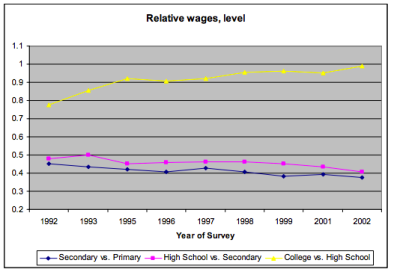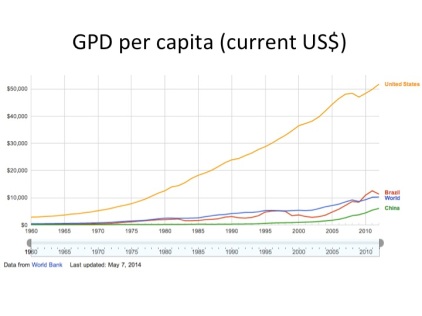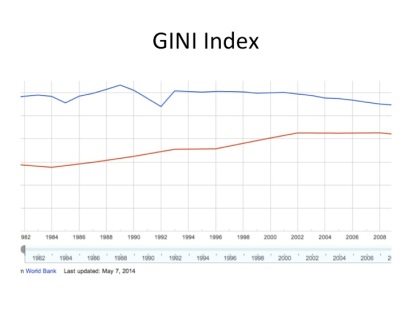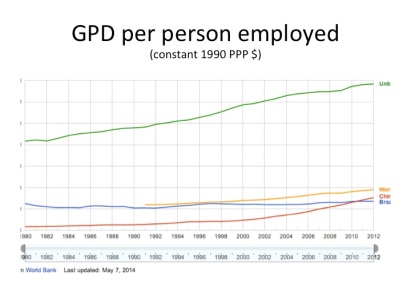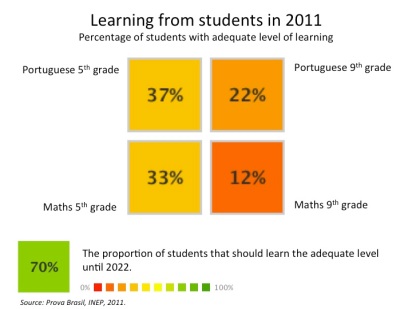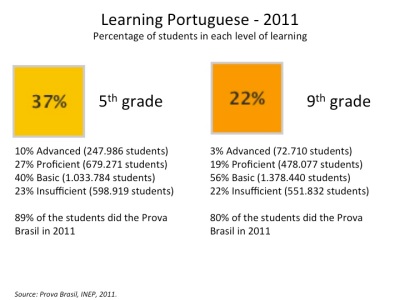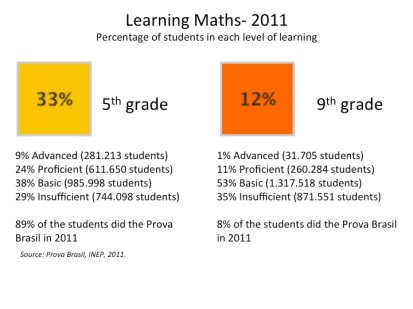As can be seen in the graphic below, in 1992 the difference between the average wage of College and High School graduates was around 0.77 log points and it increased to 0.99 in 2002. In growth terms, relative wages at College level increased by around 30 per cent in 10 years. On the contrary, the difference in average wages both between High School and Secondary and Secondary and Primary graduates started from much lower levels in 1992 and decreased.
This means that the difference between Primary and Secondary levels of education don’t make much differences in the relative wage. But, as you conclude your college level, this wage increases significantly as you can see on the yellow line.
Source: Binelli, C., Meghir, C., & Menezes-Filho, N. (2009). Education and wages in Brazil. Unpublished Mimeo.
It seems that it is the best argument to convince a kid to pursue college degree: they can make more money with that college degree than their secondary degree. Keep going kids!
Making progress in attainment rates at all levels of education
Educational attainment rates in Brazil have been rising over the past decade, but are still lagging far behind the average for OECD countries. The proportion of people with an upper secondary qualification has risen from 26% among 55-64 year-olds to 53% among 25-34 year-olds. In 2011, 43% of 25-64 year-olds had attained this level of education, whereas across OECD countries 75% had.
Tertiary attainment rates have also increased, but at a slower pace. They now stand at 9% among 55-64 year-olds and 13% among 25-34 year-olds. At 12%, Brazil’s tertiary educational attainment rate for 25-64 year-olds remains below the average of 32% for OECD countries and 26% for G20 ones.
Source: OECD

